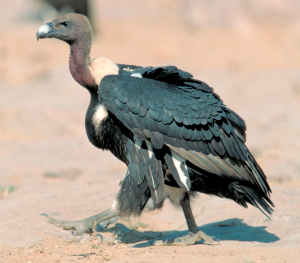
I blogged a while ago about the meeting in Quito which has implications for insecticide use on crops, veterinary use of diclofenac and the poisoning of wildlife with lead and other poisons. That meeting is now underway.
I hear, from mates in other EU countries (isn’t it good to have contacts?) that things, at the moment, look good for a diclofenac ban (see here, here) which would be such a great decision by all the countries involved and I understand the UK is playing a good role in this.
One of the five poisons under discussion, lead, is close to my own heart as I lobbied to get the English ban on shooting wildfowl with lead in England (see Fighting for Birds pp 248-253)). I’ve watched with interest as various studies have shown the lack of compliance with these regulations – see my blogs here and here. The most recent study shows 70% non-compliance with the existing law and although the Lead Ammunition Group was established 4 years ago (I was a member at the time) there has been no action on the part of Defra, so far, to deal with this. At least the Food Standards Agency have been rather more active in publishing advice to frequent consumers of game (see here even to the extent of correcting misinformation by shooting organisations).
![By Lord Mountbatten (Own work) [Public domain], via Wikimedia Commons](https://markavery.info/wp-content/uploads/2012/10/800px-7.5_Cartridges-300x225.jpg)
Will the UK government delegation be pushing for the ban though? Or will they rather be responding to pressure from some government ministers and their cronies? The disregard of shooting organisations to the risks presented both to wild birds and human health from lead has been shocking – see previous blogs here and here. Participants at the CMS COP include both members of shooting organisations, which is perhaps not surprising, but also ammunition manufacturers. Interesting that they have turned up at a global convention on conservation of migratory species. I’d like to imagine they’re taking an environmentally responsible stand and promoting sustainable hunting and wise use. But will they be? Do turkeys vote for Christmas?
Let’s hope that the UK’s contribution to the CMS isn’t a lot of money spent on getting to the other side of the world, very many tonnes of carbon released and a scuppering of an opportunity to prevent thousands of birds being poisoned to death… If so I doubt we’d ever be able to look some of our European neighbours in the eye and ask for the illegal killing of migratory birds to be stopped when we’re not even prepared to clean up our own act. Let’s hope that our ministers are instructing their delegation in favour of the public and environmental good – if so I’ll be the first to pat them on the back.
But, if there are any hitches with progress on this issue we should all ask Defra what their line has been on this matter after the Quito conference. Wouldn’t it be embarrassing for the relatively new Secretary of State, Liz Truss, if it were found, perhaps through well-targetted EIR/FOI requests, or perhaps simply from word of mouth from other EU countries (or other enlightened countries) that the UK was not one of the good guys?
This is what I posted on this blog over three weeks ago:
‘What is the position of ‘our’ government on these matters? Will Defra report back to the electorate in any way at all? Will it admit to being one of the blocks to progress if, indeed, it takes its domestic position abroad? Will it give us all the chance to say ‘Well done!’ if it is one of the good guys?
I fear that Defra’s position might well be to follow the instructions of the NFU, BASC and Countryside Alliance. How will we know? Would Ms Truss like to tell us, please?’
If there is not progress in Quito then I can promise you that this blog, and others, will be seeking answers from Defra on what ‘our’ role has been in these negotiations. Surely the UK cannot be on the side of the poisoners?
[registration_form]
My current state over the way our government persistently looks the other way whilst it’s own commit crime after crime is one of blood boiling speechlessness. Do they really think that we are all going to just go away and not be there watching and reporting on every foot they put wrong?
You are making yourselves look like common criminals, which is in fact what you are if you turn a blind eye to known wrong doings. People with open eyes are becoming more numerous. At some point you will have to begin to get scared. Best to put your house in order now before it gets big enough for the common people to talk about, because when that happens, the papers will have a bonanza.